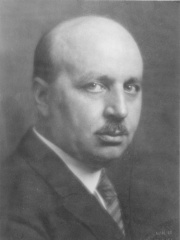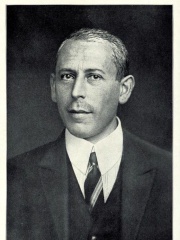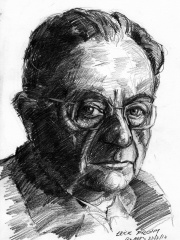
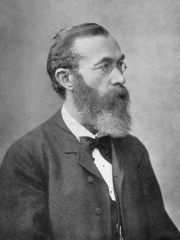
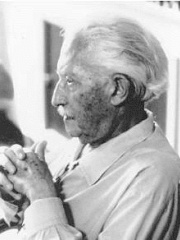
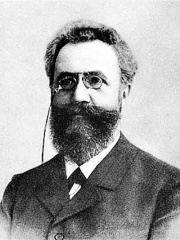
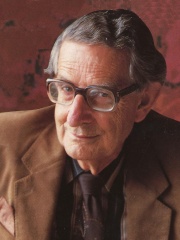
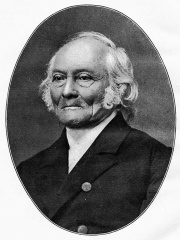
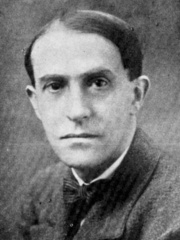
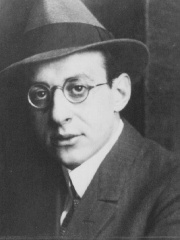
The Most Famous
PSYCHOLOGISTS from Germany
This page contains a list of the greatest German Psychologists. The pantheon dataset contains 235 Psychologists, 23 of which were born in Germany. This makes Germany the birth place of the 2nd most number of Psychologists.
Top 10
The following people are considered by Pantheon to be the top 10 most legendary German Psychologists of all time. This list of famous German Psychologists is sorted by HPI (Historical Popularity Index), a metric that aggregates information on a biography's online popularity. Visit the rankings page to view the entire list of German Psychologists.

1. Erich Fromm (1900 - 1980)
With an HPI of 81.27, Erich Fromm is the most famous German Psychologist. His biography has been translated into 70 different languages on wikipedia.
Erich Seligmann Fromm (; German: [fʁɔm]; March 23, 1900 – March 18, 1980) was a German-American social psychologist, psychoanalyst, sociologist, humanistic philosopher, and democratic socialist. He was a German Jew who fled the Nazi regime and settled in the United States. He was one of the founders of The William Alanson White Institute of Psychiatry, Psychoanalysis and Psychology in New York City and was associated with the Frankfurt School of critical theory.

2. Wilhelm Wundt (1832 - 1920)
With an HPI of 80.54, Wilhelm Wundt is the 2nd most famous German Psychologist. His biography has been translated into 78 different languages.
Wilhelm Maximilian Wundt (; German: [vʊnt]; 16 August 1832 – 31 August 1920) was a German physiologist, philosopher, professor, and one of the fathers of modern psychology. Wundt, who distinguished psychology as a science from philosophy and biology, was the first person to call himself a psychologist. He is widely regarded as the "father of experimental psychology". In 1879, at the University of Leipzig, Wundt founded the first formal laboratory for psychological research. This marked psychology as an independent field of study. He also established the first academic journal for psychological research, Philosophische Studien (from 1883 to 1903), followed by Psychologische Studien (from 1905 to 1917), to publish the institute's research. A survey published in American Psychologist in 1991 ranked Wundt's reputation as first for "all-time eminence", based on ratings provided by 29 American historians of psychology. William James and Sigmund Freud were ranked a distant second and third.

3. Erik Erikson (1902 - 1994)
With an HPI of 78.99, Erik Erikson is the 3rd most famous German Psychologist. His biography has been translated into 62 different languages.
Erik Homburger Erikson (born Erik Salomonsen; 15 June 1902 – 12 May 1994) was a German-American child psychoanalyst and visual artist known for his theory on psychosocial development of human beings. He coined the phrase identity crisis. Despite lacking a university degree, Erikson served as a professor at prominent institutions, including Harvard, University of California, Berkeley, and Yale. A Review of General Psychology survey, published in 2002, ranked Erikson as the 12th most eminent psychologist of the 20th century.

4. Hermann Ebbinghaus (1850 - 1909)
With an HPI of 74.08, Hermann Ebbinghaus is the 4th most famous German Psychologist. His biography has been translated into 44 different languages.
Hermann Ebbinghaus (24 January 1850 – 26 February 1909) was a German psychologist who pioneered the experimental study of memory. Ebbinghaus discovered the forgetting curve and the spacing effect. He was the first person to describe the learning curve. He was the father of the neo-Kantian philosopher Julius Ebbinghaus.
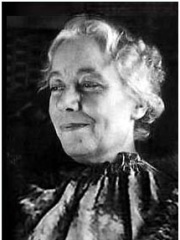
5. Karen Horney (1885 - 1952)
With an HPI of 73.22, Karen Horney is the 5th most famous German Psychologist. Her biography has been translated into 52 different languages.
Karen Horney (; German: [ˈhɔʁnaɪ]; née Danielsen; 16 September 1885 – 4 December 1952) was a German psychoanalyst who practiced in the United States during her later career. Her theories questioned some traditional Freudian views, specifically in theories of sexuality and of the instinct orientation of psychoanalysis. Horney is also credited with founding feminist psychology in response to Freud's theory of penis envy. She disagreed with Freud about inherent differences in the psychology of men and women, and like Adler, she traced such differences to society and culture rather than biology.

6. Hans Eysenck (1916 - 1997)
With an HPI of 71.77, Hans Eysenck is the 6th most famous German Psychologist. His biography has been translated into 53 different languages.
Hans Jürgen Eysenck ( EYE-zenk; 4 March 1916 – 4 September 1997) was a German-born British psychologist. He is best remembered for his work on intelligence and personality, although he worked on other issues in psychology. At the time of his death, Eysenck was the most frequently cited living psychologist in peer-reviewed scientific journal literature. Eysenck's research included claims that certain personality types had an elevated risk of cancer and heart disease and research on IQ scores and race (first published in 1971), which were a significant source of controversy. Scholars have identified errors and suspected data manipulation in Eysenck's work, and large replications have failed to confirm the relationships that he purported to find. An enquiry on behalf of King's College London found the papers by Eysenck coauthored with Ronald Grossarth-Maticek to be "incompatible with modern clinical science", with 26 of the joint papers considered suspect. Fourteen papers were retracted in 2020, and over 60 statements of concern were issued by scientific journals in 2020 about publications by Eysenck. David Marks and Rod Buchanan, a biographer of Eysenck, have argued that 87 publications by Eysenck should be retracted.

7. Ernst Heinrich Weber (1795 - 1878)
With an HPI of 69.82, Ernst Heinrich Weber is the 7th most famous German Psychologist. His biography has been translated into 40 different languages.
Ernst Heinrich Weber (; German: [ˈveːbɐ]; 24 June 1795 – 26 January 1878) was a German physician who is considered one of the founders of experimental psychology. Ernst Weber was born into an academic background, with his father serving as a professor at the University of Wittenberg. Weber became a doctor, specializing in anatomy and physiology. Two of his younger brothers, Wilhelm and Eduard, were also influential in academia, both as scientists with one specializing in physics and the other in anatomy. Ernst became a lecturer and a professor at the University of Leipzig and stayed there until his retirement.

8. Kurt Koffka (1886 - 1941)
With an HPI of 69.72, Kurt Koffka is the 8th most famous German Psychologist. His biography has been translated into 33 different languages.
Kurt Koffka (German: [ˈkɔfka]; March 12, 1886 – November 22, 1941) was a German psychologist and professor. He was born and educated in Berlin, Germany; he died in Northampton, Massachusetts, from coronary thrombosis. He was influenced by his maternal uncle, a biologist, to pursue science. He had many interests including visual perception, brain damage, sound localization, developmental psychology, and experimental psychology. He worked alongside Max Wertheimer and Wolfgang Köhler to develop Gestalt psychology. Koffka had several publications including "The Growth of the Mind: An Introduction to Child Psychology" (1924) and "The Principles of Gestalt Psychology" (1935) which elaborated on his research.

9. Fritz Perls (1893 - 1970)
With an HPI of 68.90, Fritz Perls is the 9th most famous German Psychologist. His biography has been translated into 29 different languages.
Friedrich Salomon Perls (July 8, 1893 – March 14, 1970), better known as Fritz Perls, was a German-born psychiatrist, psychoanalyst and psychotherapist. Perls coined the term "Gestalt therapy" to identify the form of psychotherapy that he developed with his wife, Laura Perls, in the 1940s and 1950s. Perls became associated with the Esalen Institute in 1964 and lived there until 1969. The core of the Gestalt therapy process is enhanced awareness of sensation, perception, bodily feelings, emotion, and behavior, in the present moment. Relationship is emphasized, along with contact between the self, its environment, and the other.
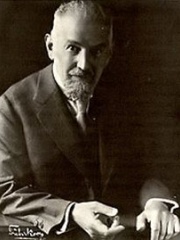
10. William Stern (1871 - 1938)
With an HPI of 68.86, William Stern is the 10th most famous German Psychologist. His biography has been translated into 32 different languages.
Louis William Stern (born Ludwig Wilhelm Stern; April 29, 1871 – March 27, 1938) was a German American psychologist and philosopher who originated personalistic psychology, which placed emphasis on the individual by examining measurable personality traits as well as the interaction of those traits within each person to create the self. Stern coined the term intelligence quotient (IQ) and invented the tone variator as a new way to study human perception of sound. Stern studied psychology and philosophy under Hermann Ebbinghaus at the Humboldt University of Berlin, and quickly moved on to teach at the University of Breslau. Later he was appointed to the position of professor at the University of Hamburg. Over the course of his career, Stern authored many books pioneering fields of psychology such as differential psychology, critical personalism, forensic psychology, and intelligence testing. Stern was also a pioneer in the field of child psychology. Together with his wife, Clara Joseephy Stern, the couple kept meticulous diaries detailing the lives of their 3 children for 18 years. He used these journals to write several books that offered an unprecedented look into the psychological development of growing children.
People
Pantheon has 23 people classified as German psychologists born between 1795 and 1950. Of these 23, 1 (4.35%) of them are still alive today. The most famous living German psychologists include Uta Frith. The most famous deceased German psychologists include Erich Fromm, Wilhelm Wundt, and Erik Erikson.
Living German Psychologists
Go to all RankingsDeceased German Psychologists
Go to all RankingsErich Fromm
1900 - 1980
HPI: 81.27
Wilhelm Wundt
1832 - 1920
HPI: 80.54
Erik Erikson
1902 - 1994
HPI: 78.99
Hermann Ebbinghaus
1850 - 1909
HPI: 74.08
Karen Horney
1885 - 1952
HPI: 73.22
Hans Eysenck
1916 - 1997
HPI: 71.77
Ernst Heinrich Weber
1795 - 1878
HPI: 69.82
Kurt Koffka
1886 - 1941
HPI: 69.72
Fritz Perls
1893 - 1970
HPI: 68.90
William Stern
1871 - 1938
HPI: 68.86
Karl Bühler
1879 - 1963
HPI: 68.37
Karl Abraham
1877 - 1925
HPI: 68.34
Overlapping Lives
Which Psychologists were alive at the same time? This visualization shows the lifespans of the 21 most globally memorable Psychologists since 1700.


